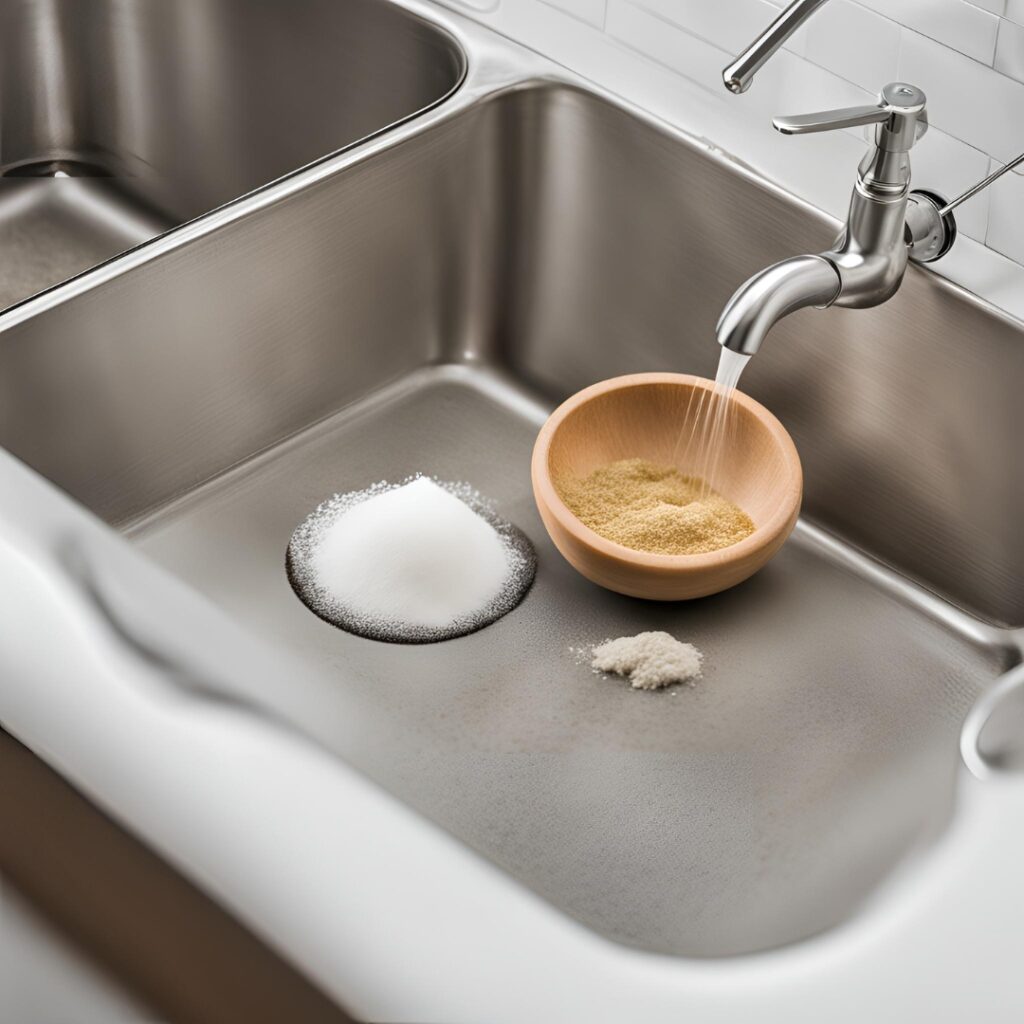The Environmental Impact of Chemical Drain Cleaners: A Deep Dive into Their Hidden Dangers


Clogged drains are a common household nuisance, and when faced with a stubborn blockage, many homeowners quickly reach for a bottle of chemical drain cleaner. These products promise fast, effective results—melting away hair, grease, and debris with minimal effort. However, what many don’t realize is that the convenience of chemical drain cleaners comes at a significant environmental cost.
In this blog post, we’ll explore the hidden dangers of chemical drain cleaners, focusing on their environmental impact, potential health risks, and safer, more sustainable alternatives. Whether you’re a homeowner looking to maintain your plumbing or an eco-conscious individual concerned about the planet, understanding the effects of these household staples is crucial for making more informed choices.
What Are Chemical Drain Cleaners?
Chemical drain cleaners are chemical formulations designed to clear clogged pipes by breaking down the material causing the obstruction. Available in liquid, gel, or foam form, they typically contain harsh chemicals like sodium hydroxide (lye), sulfuric acid, or hydrochloric acid. These substances are powerful enough to dissolve hair, soap scum, grease, and other common household blockages.
While they offer a quick fix, the reality is that many chemical drain cleaners contain substances that can harm not only your plumbing but also the environment.
How Do Chemical Drain Cleaners Work?
Chemical drain cleaners work through a process called “caustic” action, which involves the breakdown of materials through chemical reactions. Here’s a quick breakdown of how the process typically works:
- Alkaline drain cleaners (such as those containing lye) break down organic materials by increasing the pH levels in the drain.
- Acidic drain cleaners (which may contain sulfuric acid or hydrochloric acid) decrease the pH level, effectively dissolving the material causing the clog.
While these chemicals are effective at clearing blockages, they can be harmful to your plumbing, your health, and the environment.
The Environmental Dangers of Chemical Drain Cleaners
Chemical drain cleaners, while effective, have significant environmental consequences. Here’s a closer look at the dangers they pose:
Water Contamination
When you pour chemical drain cleaners down the drain, they don’t simply disappear. Many of these chemicals end up in wastewater systems, which eventually flow into rivers, lakes, and oceans. Over time, the accumulation of chemicals in water bodies can lead to contamination, harming aquatic life and potentially impacting the water supply for human consumption.
The toxicity of substances like sodium hydroxide, sulfuric acid, and hydrochloric acid is concerning. Even in small quantities, they can significantly alter the pH balance of water bodies, leading to long-term ecological damage. For instance, a sudden change in pH can disrupt aquatic ecosystems, harming fish, amphibians, and other wildlife.
Harm to Wildlife and Ecosystems
The impact of chemical drain cleaners extends beyond water contamination. These substances can harm animals that come into contact with polluted water. For example, fish can die or become disoriented from even small concentrations of harmful chemicals in their habitat. This ripple effect can disrupt entire ecosystems, as the death of one species can have unintended consequences for other organisms within the same food chain.
Additionally, when chemical drain cleaners are not disposed of properly, they can pollute soil and groundwater, impacting local wildlife, including plants, insects, and larger animals.
Air Quality and Ozone Depletion
Many chemical drain cleaners contain volatile organic compounds (VOCs), which are harmful to air quality. VOCs are released into the atmosphere when the product is used, contributing to air pollution and potentially damaging the ozone layer. Prolonged exposure to these chemicals can also have detrimental effects on human health, including respiratory issues.
Health Risks Associated with Chemical Drain Cleaners
While chemical drain cleaners are designed to clear clogs, their strong chemical composition poses significant health risks to both humans and animals.
For Humans
The chemicals in drain cleaners can cause skin and eye irritation, especially if they come into direct contact. Inhaling the fumes can lead to respiratory problems, such as coughing, wheezing, and shortness of breath. In more severe cases, accidental ingestion of these products can lead to chemical burns or even life-threatening injuries.
For households with children or pets, the dangers are even more pronounced, as these products are often left within reach. Ingestion or skin contact can result in severe burns, poisoning, and long-term health complications.
For Pets
Pets, particularly dogs and cats, are especially vulnerable to the toxic effects of chemical drain cleaners. Animals may unintentionally ingest the chemicals if they come into contact with contaminated water or surfaces, leading to serious poisoning. Some pets may experience symptoms like vomiting, lethargy, and even organ damage in extreme cases.
The Hidden Costs of Chemical Drain Cleaners: Beyond the Environment
Chemical drain cleaners may seem like a quick and inexpensive solution to clogged pipes, but they come with hidden costs that go beyond environmental damage.
Plumbing Damage
The caustic nature of many chemical drain cleaners can cause significant damage to your plumbing over time. The chemicals can corrode pipes, leading to leaks, cracks, or even complete pipe failure. This damage can result in costly repairs and even the need for full pipe replacements.
Long-Term Impact on Municipal Water Systems
When chemical drain cleaners enter municipal water systems, they can compromise the water treatment process. The chemicals can disrupt the natural filtration processes, requiring additional treatments and increasing the overall cost of water treatment for entire communities. Over time, this can strain local governments and contribute to higher water bills for consumers.
Eco-Friendly Alternatives to Chemical Drain Cleaners
Fortunately, there are several eco-friendly alternatives to chemical drain cleaners that can effectively clear clogged drains without compromising the environment or your health. Here are some of the best options:
Natural Drain Cleaners
Several natural cleaning solutions can effectively clear drains without resorting to harsh chemicals. Common ingredients include:
- Baking soda and vinegar: When combined, these two household items create a fizzing reaction that can help break down grease and grime in pipes.
- Lemon juice: Known for its natural disinfecting properties, lemon juice can help clean drains while leaving behind a fresh scent.
DIY Solutions
For regular maintenance, a mixture of hot water and a plunger can be a simple yet effective way to dislodge blockages. Alternatively, a drain snake can physically remove clogs without the use of chemicals.
Professional Green Cleaning Options
For more stubborn blockages, consider hiring a professional plumber who specializes in eco-friendly methods. Many plumbers now offer green drain cleaning services that use non-toxic solutions and advanced tools like hydro-jetting, which uses high-pressure water to clear blockages without chemicals.
How to Properly Dispose of Chemical Drain Cleaners
If you have leftover chemical drain cleaners, it’s important to dispose of them properly. Pouring them down the drain or toilet only exacerbates the environmental impact. Instead, take unused products to a local hazardous waste disposal facility. Many municipalities offer designated drop-off points for household chemicals, ensuring that these dangerous substances are disposed of safely.
Frequently Asked Questions
Chemical drain cleaners contain harsh chemicals (e.g., lye, sulfuric acid) that dissolve clogs by altering the pH levels in pipes, breaking down blockages like hair and grease.
Yes, they can contaminate water sources, harm aquatic life by disrupting ecosystems, and contribute to long-term environmental damage if not disposed of properly.
They can cause skin and eye irritation, respiratory issues, chemical burns, and poisoning if ingested. Pets are also at risk of poisoning.
Yes, many plumbers now offer green services using non-toxic, biodegradable solutions and high-pressure water techniques to clear drains safely.
As homeowners, it’s our responsibility to make informed choices about the products we use. By being mindful of the environmental and health impacts of chemical drain cleaners, we can ensure a cleaner, safer, and more sustainable future for generations to come.
If you’re ready to make the switch to safer, eco-friendly drain maintenance solutions, check out our guide to natural drain cleaning products and sustainable plumbing practices. Take the first step toward a healthier home and a cleaner planet today. And for more stubborn blockages, consider hiring iFix Plumbing & Drains- Plumber Richmond Hill, as we specializes in any kind of plumbing tasks.
